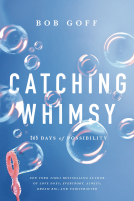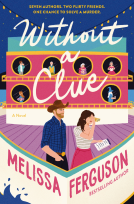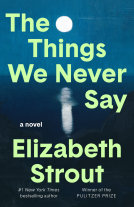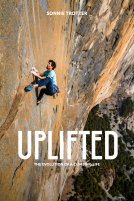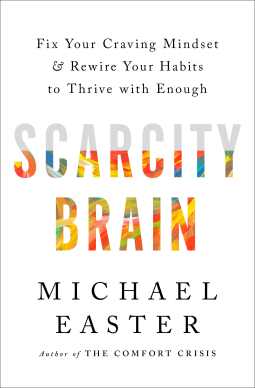
Scarcity Brain
Fix Your Craving Mindset and Rewire Your Habits to Thrive with Enough
by Michael Easter
This title was previously available on NetGalley and is now archived.
Send NetGalley books directly to your Kindle or Kindle app
1
To read on a Kindle or Kindle app, please add kindle@netgalley.com as an approved email address to receive files in your Amazon account. Click here for step-by-step instructions.
2
Also find your Kindle email address within your Amazon account, and enter it here.
Pub Date Sep 26 2023 | Archive Date Jan 31 2024
Rodale Inc. | Rodale Books
Talking about this book? Use #ScarcityBrain #NetGalley. More hashtag tips!
Description
“Reveals the biological and evolutionary foundations behind your brain’s fixations, so you can stop seeking and start living.”—Melissa Urban, Whole30 CEO and author of The Book of Boundaries
“Michael Easter’s genius is that he puts data around the edges of what we intuitively believe. His work has inspired many to change their lives for the better.”—Dr. Peter Attia, author of Outlive
Have you ever found yourself wondering “Why do I want more than I have?” Michael Easter, author of The Comfort Crisis and one of the world’s leading experts on behavior change, shows that the problem isn’t you. The problem is your scarcity mindset, left over from our ancient ancestors. They had to constantly seek and consume to survive because vital survival tools like food, material goods, information, and power were scarce and hard to find.
But with our modern ability to easily fulfill our ancient desire for more, our hardwired “scarcity brain” is now backfiring. And new technology and institutions—from dating and entertainment apps to our food and economic systems—are exploiting our scarcity brain. They’re bombarding us with subversive “scarcity cues,” subtle triggers that lead us into low-reward cravings that hurt us in the long run. Scarcity cues can be direct and all-encompassing, like a sagging economy. Or they can be subtle and slight, like our neighbor buying a shiny new car.
Easter traveled the world to consult with remarkable innovators and leading scientists who are finding surprising solutions for our scarcity brain. He discovered simple tactics that can move us towards an abundance mindset, cement healthy habits, and allow us to live our lives to the fullest and appreciate what we have, including how to:
• Detect hidden scarcity cues to stop cravings before they start, from a brilliant slot machine designer in a Las Vegas casino laboratory
• Turn alone time into the ultimate happiness hack, from artisanal coffee-making Benedictine monks
• Reignite your exploration gene for a more exciting and fulfilling life, from an astronaut onboard the International Space Station
• Reframe how we think about and fix addiction and bad habits, from Iraq’s chief psychiatrist
• Recognize when you have enough, from a woman who left a million-dollar career path to adventure the world
Our world is overloaded with everything we’re built to crave. The fix for scarcity brain isn’t to blindly aim for less. It’s to understand why we crave more in the first place, shake our worst habits, and use what we already have better. Then we can experience life in a new way—a more satisfying way.
Available Editions
| EDITION | Other Format |
| ISBN | 9780593236628 |
| PRICE | $28.00 (USD) |
| PAGES | 304 |
Available on NetGalley
Average rating from 25 members
Featured Reviews
Really well written self help book! Great advice written in an easy to comprehend and retain format. Loved it!
 Reviewer 965833
Reviewer 965833
Michael Easter’s Scarcity Brain is a deeply researched book about why we do what we do: why do we eat that entire bag of chips? Because we might never get more. Why do we gamble? Work too much? Drink to excess? Do drugs? Because we are evolutionarily wired to overindulge in substances and activities that maybe, just might, could, become harder to access next time. This drive is ruthlessly exploited by the people and entities that want to sell us more and more — or get us hooked on gambling, shopping, or anything else they can make money on.
Easter’s book explores the psychology behind Scarcity Brain. It looks at the emotional and behavioral drivers that keep us in the scarcity loop. Easter’s writing is personal and accessible — he brings the reader into his investigations so that we, too, can experience what he’s learning. From Las Vegas to Iraq to the Amazon, it all adds to the case he builds for how humans look at risk and reward.
Easter suggests replacing scarcity loops with abundance loops --and offers examples-- but his main focus is on awareness. We need to know we're being manipulated in order to find a way out. After all, he says, “We have one shot at life. The scarcity loop … pushes us into short-term thinking … at the expense of long-term rewards, growth, and meaning”. Wise words.
Thanks to NetGalley and the publisher for an ARC.
Favorite Quote: Because here’s the thing: it doesn’t matter how much gas we give good new habits; if we don’t resolve our bad ones, we still have our foot on the brake.
Synopsis: Scarcity Brain is the companion book we never knew we needed. While so many books discuss how to build good habits, few books dive into why we have bad habits in the first place. Scarcity Brain gives you insight into the scarcity loop. Easter investigates how our scarcity mindset causes us to overindulge in food, booze, gambling, exercise, perfectionism, work, etc. From Baghdad to Bolivia, Easter’s quests help provide context on the neuroscientific reasons why we behave the way we do. He also explores the emotional and mental drivers that keep us in the scarcity loop, perpetuating and sometimes exacerbating unpleasant (even harmful) actions.
After I read The Comfort Crisis by Michael Easter, I was utterly delighted to get the ARC for Scarcity Brain. Easter has a way of writing that connects the reader to his topic and the people he interviews. Throughout the book, I learned new things, but most importantly, I found insight into why I can’t seem to shake some of my less desirable habits. Easter is no stranger to walking the walk by putting himself into highly stressful situations to get answers. He also presents information in a way that, naturally, makes his point, but he’s also clear about arguments and counterpoints to his perspective. Each story and anecdote is carefully woven in each chapter so you have a complete picture when you reach the end. If you’ve ever read a book about building habits (Atomic Habits by James Clear, Tiny Habits by B.J. Fogg, The Power of Habit by Charles Duhigg), you should definitely read Scarcity Brain by Michael Easter.
 Audra B, Educator
Audra B, Educator
If you haven't read The Comfort Crisis by Michael Easter, then you need to, right now. If you are thinking about reading Scarcity Brain, do it as well, today. I read these books , I read them out loud to my kids. They make for some great "aha" moments and some beautiful conversations with your kids (or friends... maybe read it with a friend, that would be excellent). Do yourself a favor and make time to read Michael Easter's books.
It’s a great read!
The scarcity mindset will keep you striving and trading your life energy (which you might not have) for money (which you probably won’t *need*) long past the point of abundance.
Learn how to recognize when our primitive lizard brains keep chasing more, and find your own abundance mindset.
Readers who liked this book also liked:
Agnieszka Was-Turecka; Ewelina Karpinska-Morek; Monika Sieradzka; Artur Wróblewski; Tomasz Majta; Michal Drzonek
Biographies & Memoirs, History, Multicultural Interest
